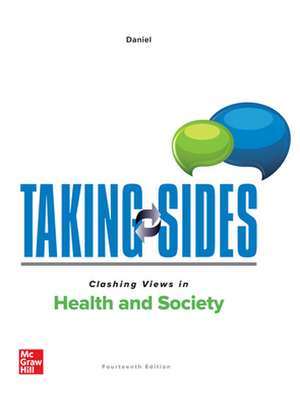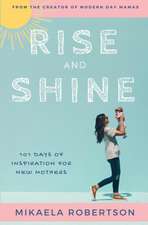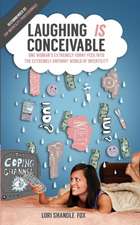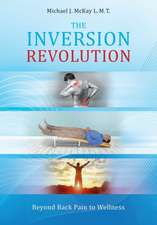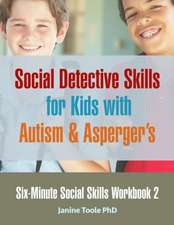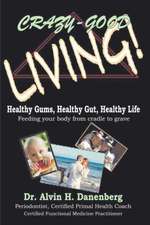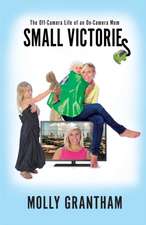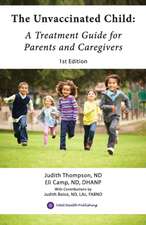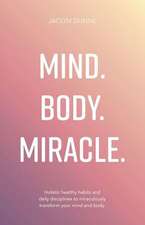Taking Sides: Clashing Views in Health and Society
Autor Eileen Danielen Limba Engleză Paperback – 30 noi 2019
Preț: 463.06 lei
Preț vechi: 503.33 lei
-8% Nou
Puncte Express: 695
Preț estimativ în valută:
88.66€ • 92.32$ • 73.56£
88.66€ • 92.32$ • 73.56£
Carte tipărită la comandă
Livrare economică 12-26 februarie
Preluare comenzi: 021 569.72.76
Specificații
ISBN-13: 9781260579819
ISBN-10: 1260579816
Pagini: 224
Greutate: 0.46 kg
Ediția:14
Editura: McGraw Hill Education
Colecția McGraw-Hill
Locul publicării:United States
ISBN-10: 1260579816
Pagini: 224
Greutate: 0.46 kg
Ediția:14
Editura: McGraw Hill Education
Colecția McGraw-Hill
Locul publicării:United States
Cuprins
Unit 1: Health and Society
Issue: Should the U.S. Adopt a Single-Price Health Care?
Yes: Paul S. Hewitt and Phillip Longman, from “The Case for Single-Price Health Care,” Washington Monthly (2018)
No: Adam Barsouk, from “The Case Against Single-Payer Health Care,” In Training: Stories from Tomorrow’s Physicians (2018)
Economic advisor to the Council for Affordable Health Coverage Paul S. Hewitt and senior editor of Washington Monthly Phillip Longman maintain that by making Medicare access universal, the United States could solve its health care cost and access crisis. Adam Barsouk, currently a medical student at Sidney Kimmel Medical College at Jefferson University, argues that the increase in taxes to fund universal coverage would negatively impact economic growth and development.
Issue: Are Vaccines Safe and Beneficial?
Yes: Stephen M. Perle, from “War Without End: The Case for Vaccination,” Chiropractic Economics (2017)
No: Timothy Perenich, from “We Are Not Told…The Case against Vaccination,” Chiropractic Economics (2017)
Professor and chiropractor Stephen M. Perle believes that the evidence is incontrovertible that vaccines are beneficial. Chiropractor Timothy Perenich disagrees and claims that many vaccines have harmful side effects and are not totally effective in preventing disease.
Unit 2: Mind-Body Relationships
Issue: Should Addiction to Drugs Be Labeled a Brain Disease?
Yes: Alan I. Leshner, from “Addiction Is a Brain Disease,” The Addiction Recovery Guide (2016)
No: Steven Slate, from “Addiction Is Not a Brain Disease, It Is a Choice,” The Clean Slate (2016)
Alan I. Leshner, director of the National Institute on Drug Abuse at the National Institutes of Health, believes that addiction to drugs and alcohol is not a behavioral condition but a treatable disease. Addiction theorist Steven Slate counters that addiction is a personal choice and cannot be considered a brain disease.
Issue: Is the Use of “Smart” Pills for Cognitive Enhancement Dangerous?
Yes: Alan Schwarz, from “Drowned in a Stream of Prescriptions,” The New York Times (2013)
No: Phil Taylor, from “Think Positive: The Rise of ‘Smart Drugs,’” PMLive (2013)
Pulitzer Prize–nominated reporter Alan Schwartz maintains that “smart pills” such as Adderall can significantly improve the lives of children and others with ADHD but that too many young adults who do not have the condition fake the symptoms and get prescriptions for the highly addictive and dangerous drug. Journalist Phil Taylor disagrees and claims that smart drugs are safe and effective in boosting cognition.
Unit 3: Sexuality and Gender Issues
Issue: Does Alcohol Consumption Increase the Risk for Breast Cancer?
Yes: Stephanie Mencimer, from “Bottled Up,” Mother Jones (2018)
No: Gary Schwitzer, from “Today’s Alcohol and Breast Cancer Headlines Are Wrong: Here’s How News Reports Could Have Done Better,” Health News Review (2017)
Reporter and breast cancer survivor Stephanie Mencimer believes that drinking may have caused her cancer but that the alcohol industry worked hard to downplay the risk. Publisher and journalist Gary Schwitzer argues that there is no conclusive proof that alcohol causes breast cancer as most of the studies are observational.
Issue: Does Watching Pornography Lead to Sexual Dysfunction?
Yes: Philip Zimbardo, Gary Wilson, and Nikita Coulombe, from “How Porn Is Messing with Your Manhood,” Skeptic (2016)
No: Marty Klein, from “Skeptical of the Porn Skeptics,” Skeptic (2016)
Psychologist Philip Zimbardo and writers Gary Wilson and Nikita Coulombe argue that watching pornography, especially by young men, can lead to sexual dysfunction with a partner. Sex therapist Marty Klein counters that while young men may be getting some wrong ideas about sex from porn, they don’t appear to suffer sexual dysfunction.
Issue: Should Embryos Produced During IVF Be Considered Children?
Yes: Thomas Brejcha et al., from “Brief of Amici Curiae Missouri Right to Life, Lawyers for Life, and American Association of Pro-Life Obstetricians & Gynecologists,” Gadberry v. McQueen, Missouri Court of Appeals (2015)
No: Joseph J. Kodner and John M. Faust, from “Brief of Amicus Curiae American Society for Reproductive Medicine in Support of Respondent,” Gadberry v. McQueen, Missouri Court of Appeals (2016)
In a friend-of-the-court brief submitted in a recent case in Missouri involving a dispute over embryos that a couple had put into storage, lawyers for the American Society for Reproductive Medicine argue that embryos are not persons and that treating them as such would have a profound negative effect on people who seek medical assistance in building their families. In a friend-of-the-court brief on the other side of the same case, lawyers representing several organizations that are opposed to abortion argue that science proves straightforwardly that embryos are persons and that the embryos in the Missouri custody dispute should be given to the parent who seeks to take care of them.
Issue: Is Gene-Editing of Human Embryos Coming Soon?
Yes: Antonio Regalado, from “Engineering the Perfect Baby,” MIT Technology Review (2015)
No: Elizabeth McNally, from “Testimony before the U.S. House of Representatives Committee on Science, Space, and Technology, Subcommittee on Research and Technology, Hearing on ‘The Science and Ethics of Genetically Engineered Human DNA,’” U.S. House of Representatives (2015)
Antonio Regalado describes recent progress in using the new CRISPR technology to edit the genes of mammalian cells, including embryos. He argues that although many people involved in the research are cautious, what was until recently only a theoretical possibility is now a very real possibility. We are very close to being able to engineer the genes of human embryos (for a variety of reasons), and most people have no idea of what is coming. Elizabeth McNally agrees that the technology is developing rapidly and has much to offer but is more reserved in her evaluation. She argues that it is necessary to regulate the technology and its uses, including limiting or prohibiting uses where changes would be passed to the next generation. However, “the justified use of this approach is certainly conceivable and may one day be appropriate.”
Unit 4: Public Health Issues
Issue: Will Hydraulic Fracturing (Fracking) Negatively Affect Human Health and the Environment?
Yes: John Rumpler, from “Fracking: Pro and Con,” Tufts Now (2013)
No: Bruce McKenzie Everett, from “Fracking: Pro and Con,” Tufts Now (2013)
Environmentalist and senior attorney for Environment America John Rumpler argues that fracking is not worth the damage to health and the environment. Energy researcher and adjunct professor Bruce McKenzie Everett claims fracking provides substantial economic benefits and its health and environmental problems are relatively small.
Issue: Can Vaccines Cause Autism?
Yes: Arjun Walia, from “Scientific Evidence Suggests the Vaccine-Autism Link Can No Longer Be Ignored,” Collective Evolution (2013)
No: Harriet Hall, from “Vaccines and Autism: A Deadly Manufactroversy,” Skeptic (2009)
Arjun Walia argues that the scientific consensus on the safety of vaccines may be suspect because “the corporate media is owned by the major vaccine manufacturers.” He describes 22 studies that suggest that the connection between childhood vaccines and autism is real or that suggest possible mechanisms for the connection. Harriet Hall argues that the controversy over whether vaccines cause autism has been manufactured by dishonest, self-serving researchers and physicians, ignorant celebrities, conspiracy theorists, and the media. The result is a resurgence of preventable diseases and childhood deaths. Vaccines save lives. Autism’s causes are probably genetic.
Issue: Should Genetically Engineered Mosquitoes Be Released into the Environment to Fight Disease?
Yes: Hadyn Parry, from “Testimony before the U.S. House of Representatives Committee on Science, Space, and Technology, Hearing on ‘Science of Zika: The DNA of an Epidemic,’” U.S. House of Representatives (2016)
No: Eric Hoffman, from “Genetically Engineered Mosquitoes in the U.S.,” Friends of the Earth (2012)
Hadyn Parry argues that genetically engineered mosquitoes hold the potential to reduce mosquito populations and control the spread of diseases such as Zika and dengue. Eric Hoffman, a biotechnology campaigner with Friends of the Earth, argues that a great deal of research remains to be done to prove the safety to both the environment and public health of releasing genetically engineered mosquitoes. In addition, medical ethics require that participants in a medical trial must be able to opt out at any time, which means that a single resident of a release area must be able to call a halt to the release program.
Unit 5: Consumer Health
Issue: Does Obesity Increase the Risk of Premature Death?
Yes: Harvard T.H. Chan School of Public Health, from “As Overweight and Obesity Increase, So Does Risk of Dying Prematurely,” Harvard T.H. Chan School of Public Health (2016)
No: Harriet Brown, from “The Weight of the Evidence,” Medical Examiner (2015)
The editors of the Harvard T. H. Chan School of Public Health argue that being overweight or obese is clearly associated with a higher risk of dying prematurely than being normal weight. Writer Harriet Brown maintains that obese individuals with chronic diseases fare better and live longer than those of normal weight.
Issue: Are Restrictions on Sugar and Sugary Beverages Justified?
Yes: Nick Gillespie, from “The Man Who Hated Carbs Before It Was Cool,” Reason (2018)
No: Kenneth W. Krause, from “Saving Us from Sweets: This Is Science and Government on Sugar,” Skeptical Inquirer (2012)
Writer Nick Gillespie interviewed science writer Gary Taubes who maintains that added sugars and sweeteners pose dangers to health and contribute to majors diseases such as diabetes and heart disease. Journalist Kenneth W. Krause argues that individuals have the ability to make decisions about sugar consumption themselves and that government should not restrict our access to sugar and sugar-containing food products.
Issue: Does Early Introduction of Food Reduce the Risk of Food Allergy?
Yes: Debra J. Palmer and Susan L. Prescott, from “Early Introduction of Food Reduces Food Allergy – Pro,” Pediatric Allergy & Immunology (2017)
No: Michael R. Perkin, from “Early Introduction of Food Reduces Food Allergy – Con,” Pediatric Allergy & Immunology (2017)
Professors Debra J. Palmer and Susan L. Prescott maintain that infants should be fed ‘more allergenic’ foods such as peanuts to help prevent the development of food allergies. Researcher Michael R. Perkin disagrees and claims that the research on benefits of early introduction of allergenic foods is limited and inconclusive.
Issue: Should Genetically Modified Foods Be Labeled?
Yes: Todd Daloz, from “Testimony before the U.S. House of Representatives Committee on Energy and Commerce, Subcommittee on Health, Hearing on ‘A National Framework for the Review and Labeling of Biotechnology in Food,’” U.S. House of Representatives (2015)
No: L. Val Giddings, from “Testimony before the U.S. House of Representatives Committee on Energy and Commerce, Subcommittee on Health, Hearing on ‘A National Framework for the Review and Labeling of Biotechnology in Food,’” U.S. House of Representatives (2015)
Todd Daloz argues that Vermont’s legislation requiring labeling of genetically modified crops (GMOs) is amply justified by the public’s need for factual information about the food they eat and that federal preemption of state labeling laws, without providing a suitable substitute, is unreasonable. L. Val Giddings argues that there is no scientific doubt that GMO crops are safe to eat, the federal government already has sufficient authority to regulate the sale and labeling of GMO foods, and the push for labeling laws is a thinly disguised effort to ban GMOs in favor of less safe and more expensive alternatives such as organic foods.
Issue: Should the U.S. Adopt a Single-Price Health Care?
Yes: Paul S. Hewitt and Phillip Longman, from “The Case for Single-Price Health Care,” Washington Monthly (2018)
No: Adam Barsouk, from “The Case Against Single-Payer Health Care,” In Training: Stories from Tomorrow’s Physicians (2018)
Economic advisor to the Council for Affordable Health Coverage Paul S. Hewitt and senior editor of Washington Monthly Phillip Longman maintain that by making Medicare access universal, the United States could solve its health care cost and access crisis. Adam Barsouk, currently a medical student at Sidney Kimmel Medical College at Jefferson University, argues that the increase in taxes to fund universal coverage would negatively impact economic growth and development.
Issue: Are Vaccines Safe and Beneficial?
Yes: Stephen M. Perle, from “War Without End: The Case for Vaccination,” Chiropractic Economics (2017)
No: Timothy Perenich, from “We Are Not Told…The Case against Vaccination,” Chiropractic Economics (2017)
Professor and chiropractor Stephen M. Perle believes that the evidence is incontrovertible that vaccines are beneficial. Chiropractor Timothy Perenich disagrees and claims that many vaccines have harmful side effects and are not totally effective in preventing disease.
Unit 2: Mind-Body Relationships
Issue: Should Addiction to Drugs Be Labeled a Brain Disease?
Yes: Alan I. Leshner, from “Addiction Is a Brain Disease,” The Addiction Recovery Guide (2016)
No: Steven Slate, from “Addiction Is Not a Brain Disease, It Is a Choice,” The Clean Slate (2016)
Alan I. Leshner, director of the National Institute on Drug Abuse at the National Institutes of Health, believes that addiction to drugs and alcohol is not a behavioral condition but a treatable disease. Addiction theorist Steven Slate counters that addiction is a personal choice and cannot be considered a brain disease.
Issue: Is the Use of “Smart” Pills for Cognitive Enhancement Dangerous?
Yes: Alan Schwarz, from “Drowned in a Stream of Prescriptions,” The New York Times (2013)
No: Phil Taylor, from “Think Positive: The Rise of ‘Smart Drugs,’” PMLive (2013)
Pulitzer Prize–nominated reporter Alan Schwartz maintains that “smart pills” such as Adderall can significantly improve the lives of children and others with ADHD but that too many young adults who do not have the condition fake the symptoms and get prescriptions for the highly addictive and dangerous drug. Journalist Phil Taylor disagrees and claims that smart drugs are safe and effective in boosting cognition.
Unit 3: Sexuality and Gender Issues
Issue: Does Alcohol Consumption Increase the Risk for Breast Cancer?
Yes: Stephanie Mencimer, from “Bottled Up,” Mother Jones (2018)
No: Gary Schwitzer, from “Today’s Alcohol and Breast Cancer Headlines Are Wrong: Here’s How News Reports Could Have Done Better,” Health News Review (2017)
Reporter and breast cancer survivor Stephanie Mencimer believes that drinking may have caused her cancer but that the alcohol industry worked hard to downplay the risk. Publisher and journalist Gary Schwitzer argues that there is no conclusive proof that alcohol causes breast cancer as most of the studies are observational.
Issue: Does Watching Pornography Lead to Sexual Dysfunction?
Yes: Philip Zimbardo, Gary Wilson, and Nikita Coulombe, from “How Porn Is Messing with Your Manhood,” Skeptic (2016)
No: Marty Klein, from “Skeptical of the Porn Skeptics,” Skeptic (2016)
Psychologist Philip Zimbardo and writers Gary Wilson and Nikita Coulombe argue that watching pornography, especially by young men, can lead to sexual dysfunction with a partner. Sex therapist Marty Klein counters that while young men may be getting some wrong ideas about sex from porn, they don’t appear to suffer sexual dysfunction.
Issue: Should Embryos Produced During IVF Be Considered Children?
Yes: Thomas Brejcha et al., from “Brief of Amici Curiae Missouri Right to Life, Lawyers for Life, and American Association of Pro-Life Obstetricians & Gynecologists,” Gadberry v. McQueen, Missouri Court of Appeals (2015)
No: Joseph J. Kodner and John M. Faust, from “Brief of Amicus Curiae American Society for Reproductive Medicine in Support of Respondent,” Gadberry v. McQueen, Missouri Court of Appeals (2016)
In a friend-of-the-court brief submitted in a recent case in Missouri involving a dispute over embryos that a couple had put into storage, lawyers for the American Society for Reproductive Medicine argue that embryos are not persons and that treating them as such would have a profound negative effect on people who seek medical assistance in building their families. In a friend-of-the-court brief on the other side of the same case, lawyers representing several organizations that are opposed to abortion argue that science proves straightforwardly that embryos are persons and that the embryos in the Missouri custody dispute should be given to the parent who seeks to take care of them.
Issue: Is Gene-Editing of Human Embryos Coming Soon?
Yes: Antonio Regalado, from “Engineering the Perfect Baby,” MIT Technology Review (2015)
No: Elizabeth McNally, from “Testimony before the U.S. House of Representatives Committee on Science, Space, and Technology, Subcommittee on Research and Technology, Hearing on ‘The Science and Ethics of Genetically Engineered Human DNA,’” U.S. House of Representatives (2015)
Antonio Regalado describes recent progress in using the new CRISPR technology to edit the genes of mammalian cells, including embryos. He argues that although many people involved in the research are cautious, what was until recently only a theoretical possibility is now a very real possibility. We are very close to being able to engineer the genes of human embryos (for a variety of reasons), and most people have no idea of what is coming. Elizabeth McNally agrees that the technology is developing rapidly and has much to offer but is more reserved in her evaluation. She argues that it is necessary to regulate the technology and its uses, including limiting or prohibiting uses where changes would be passed to the next generation. However, “the justified use of this approach is certainly conceivable and may one day be appropriate.”
Unit 4: Public Health Issues
Issue: Will Hydraulic Fracturing (Fracking) Negatively Affect Human Health and the Environment?
Yes: John Rumpler, from “Fracking: Pro and Con,” Tufts Now (2013)
No: Bruce McKenzie Everett, from “Fracking: Pro and Con,” Tufts Now (2013)
Environmentalist and senior attorney for Environment America John Rumpler argues that fracking is not worth the damage to health and the environment. Energy researcher and adjunct professor Bruce McKenzie Everett claims fracking provides substantial economic benefits and its health and environmental problems are relatively small.
Issue: Can Vaccines Cause Autism?
Yes: Arjun Walia, from “Scientific Evidence Suggests the Vaccine-Autism Link Can No Longer Be Ignored,” Collective Evolution (2013)
No: Harriet Hall, from “Vaccines and Autism: A Deadly Manufactroversy,” Skeptic (2009)
Arjun Walia argues that the scientific consensus on the safety of vaccines may be suspect because “the corporate media is owned by the major vaccine manufacturers.” He describes 22 studies that suggest that the connection between childhood vaccines and autism is real or that suggest possible mechanisms for the connection. Harriet Hall argues that the controversy over whether vaccines cause autism has been manufactured by dishonest, self-serving researchers and physicians, ignorant celebrities, conspiracy theorists, and the media. The result is a resurgence of preventable diseases and childhood deaths. Vaccines save lives. Autism’s causes are probably genetic.
Issue: Should Genetically Engineered Mosquitoes Be Released into the Environment to Fight Disease?
Yes: Hadyn Parry, from “Testimony before the U.S. House of Representatives Committee on Science, Space, and Technology, Hearing on ‘Science of Zika: The DNA of an Epidemic,’” U.S. House of Representatives (2016)
No: Eric Hoffman, from “Genetically Engineered Mosquitoes in the U.S.,” Friends of the Earth (2012)
Hadyn Parry argues that genetically engineered mosquitoes hold the potential to reduce mosquito populations and control the spread of diseases such as Zika and dengue. Eric Hoffman, a biotechnology campaigner with Friends of the Earth, argues that a great deal of research remains to be done to prove the safety to both the environment and public health of releasing genetically engineered mosquitoes. In addition, medical ethics require that participants in a medical trial must be able to opt out at any time, which means that a single resident of a release area must be able to call a halt to the release program.
Unit 5: Consumer Health
Issue: Does Obesity Increase the Risk of Premature Death?
Yes: Harvard T.H. Chan School of Public Health, from “As Overweight and Obesity Increase, So Does Risk of Dying Prematurely,” Harvard T.H. Chan School of Public Health (2016)
No: Harriet Brown, from “The Weight of the Evidence,” Medical Examiner (2015)
The editors of the Harvard T. H. Chan School of Public Health argue that being overweight or obese is clearly associated with a higher risk of dying prematurely than being normal weight. Writer Harriet Brown maintains that obese individuals with chronic diseases fare better and live longer than those of normal weight.
Issue: Are Restrictions on Sugar and Sugary Beverages Justified?
Yes: Nick Gillespie, from “The Man Who Hated Carbs Before It Was Cool,” Reason (2018)
No: Kenneth W. Krause, from “Saving Us from Sweets: This Is Science and Government on Sugar,” Skeptical Inquirer (2012)
Writer Nick Gillespie interviewed science writer Gary Taubes who maintains that added sugars and sweeteners pose dangers to health and contribute to majors diseases such as diabetes and heart disease. Journalist Kenneth W. Krause argues that individuals have the ability to make decisions about sugar consumption themselves and that government should not restrict our access to sugar and sugar-containing food products.
Issue: Does Early Introduction of Food Reduce the Risk of Food Allergy?
Yes: Debra J. Palmer and Susan L. Prescott, from “Early Introduction of Food Reduces Food Allergy – Pro,” Pediatric Allergy & Immunology (2017)
No: Michael R. Perkin, from “Early Introduction of Food Reduces Food Allergy – Con,” Pediatric Allergy & Immunology (2017)
Professors Debra J. Palmer and Susan L. Prescott maintain that infants should be fed ‘more allergenic’ foods such as peanuts to help prevent the development of food allergies. Researcher Michael R. Perkin disagrees and claims that the research on benefits of early introduction of allergenic foods is limited and inconclusive.
Issue: Should Genetically Modified Foods Be Labeled?
Yes: Todd Daloz, from “Testimony before the U.S. House of Representatives Committee on Energy and Commerce, Subcommittee on Health, Hearing on ‘A National Framework for the Review and Labeling of Biotechnology in Food,’” U.S. House of Representatives (2015)
No: L. Val Giddings, from “Testimony before the U.S. House of Representatives Committee on Energy and Commerce, Subcommittee on Health, Hearing on ‘A National Framework for the Review and Labeling of Biotechnology in Food,’” U.S. House of Representatives (2015)
Todd Daloz argues that Vermont’s legislation requiring labeling of genetically modified crops (GMOs) is amply justified by the public’s need for factual information about the food they eat and that federal preemption of state labeling laws, without providing a suitable substitute, is unreasonable. L. Val Giddings argues that there is no scientific doubt that GMO crops are safe to eat, the federal government already has sufficient authority to regulate the sale and labeling of GMO foods, and the push for labeling laws is a thinly disguised effort to ban GMOs in favor of less safe and more expensive alternatives such as organic foods.
